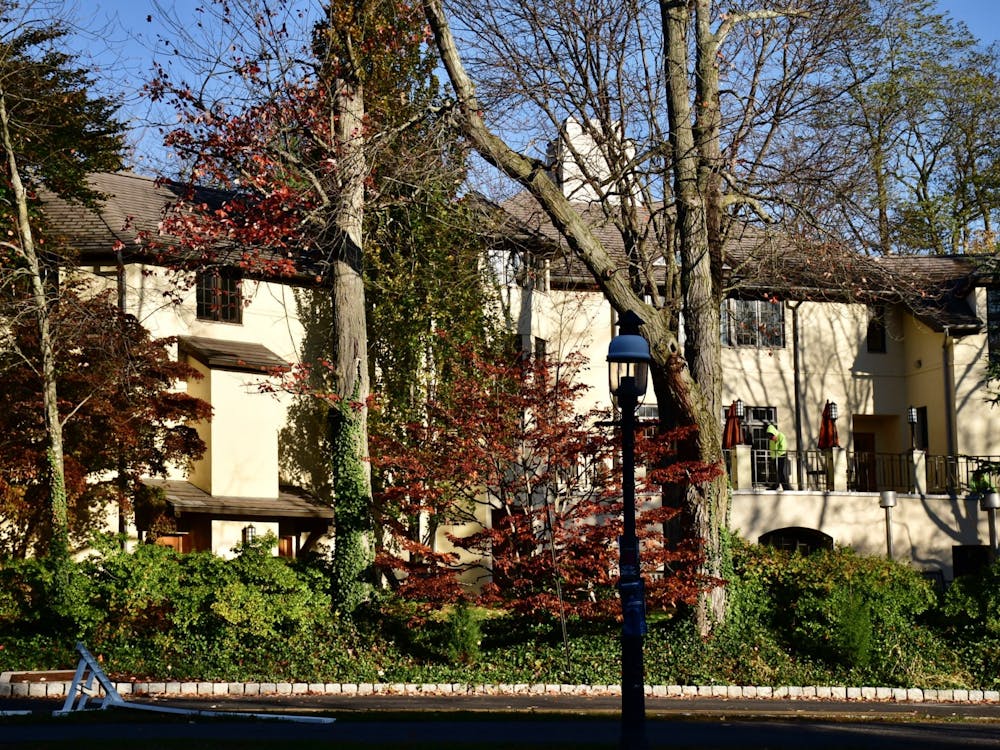This past friday afternoon saw the transformation of Dillon Gymnasium main floor from a quiet basketball court to a bustling nexus of student activity. The long hall stood lined with rows upon rows of tables, each teeming with students eager to see all of what Princeton had to offer outside of the classroom. Members advertised their groups, thrusting sign-up sheets and candy at passers-by as they expounded excitedly about everything from the wonders of Italian cooking to the virtues of playing squash.
As I stood amid the hubbub I could not help but be amazed by the sheer quantity and variety of opportunities that Princeton students offer one another. Watching and listening to the comers and goers in Dillon that day impressed upon me the vast possibilities available to us as undergraduates and reinforced my firm belief that extracurriculars are Princeton’s lifeblood, granting our school her dynamic nature and incredible vitality. The activities in which we partake as undergraduates have social, practical and personal impact of which many of us are hardly aware.
The social importance of the extracurricular groups on campus cannot be overstated. As was mentioned time and time again during the course of freshman week, many Princeton students meet their closest, most enduring friends through the common interests that they can explore together outside of the classroom. There’s just something about the pursuit of a common goal that really brings people together in a way that casual acquaintances struggle to match. You can’t help but form connections with people after going through the efforts of putting on a play or winning an Ivy League title.
Many Princeton students believe that the eating clubs constitute the hub of social life at Princeton. But any close observation would show one that the clubs are really just aggregates of student groups on campus. The clubs themselves are not single entities, but rather a conglomerate of extracurricular groups united under a common name. This observation proves that social life at Princeton (and likely across the country) is predicated on extracurriculars.
Perhaps more important than the social role of Princeton organizations is the practical education which they lend alongside the mostly theoretical courses comprising our formal education. I believe that work done outside of the classroom can often be an as good, if not better, prediction of where Princetonians will go after graduation than is their major. Often, especially in social progress groups, such as Greening Princeton or Engineers Without Borders, and content-producing groups, like the newspapers or performance arts, students engage in activities that much more closely reflect their passions and talents.
Whether it be non-academic writing, singing or gardening, extracurriculars allow Princeton students to experience and gain practice in things which could prove useful, assuming they don’t pursue a career in academia. Managing and participating in student groups teaches undergrads everything from logistics planning to administrative procedures, skills that will be invaluable in an innumerable number of fields. There are certain students here whose developmental needs simply aren’t satisfied just by academics.
This discussion leads me to the issue of personal development. College is, more than anything, a voyage on the search for self. Everything we do here is ultimately teaching us more about who we are and what we do and do not like to do. The development of this self-knowledge and a fleshing out of our personal identity is the primary objective of the undergraduate years as far as I’m concerned. Extracurriculars offer a chance to develop oneself in ways which one might never have been able to before. Having consistent, rewarding experiences outside of the classroom and generating genuinely good work whose merit isn’t marred by the necessity of a grade are critical to reinforcing self-worth and healthy perspective.
Some may question the efficacy of student groups on campus, especially when compared to their professional analogs. While college students naturally don’t have the resources or influence to tackle some of the world’s most pressing needs, the undergraduate years are an excellent time to get one’s feet wet. By contemplating dilemmas such as AIDS in Africa, to use Allen’s example, students become informed about the issue and gain knowledge that could later prove useful should they choose to go further with third world health issues. For the most part, any time spent thinking and working through problems is experience gained, even if the effects of the group are limited.
At the end of the day, there is definitely an activity at Princeton for everyone, whether he or she is a bookworm, an athlete or an artist. Working for something larger than oneself is a deeply fulfilling endeavor that every Princetonian has the chance to undertake. So be you freshmen, sophomore or upperclassmen, you should throw yourselves wholeheartedly into the maelstrom that is Princeton and discover all of the wonderful opportunities and people that she has to offer.
Nathan Mathabane is a Geosciences major from Portland, Ore. He can be reached at nmathaba@princeton.edu.








